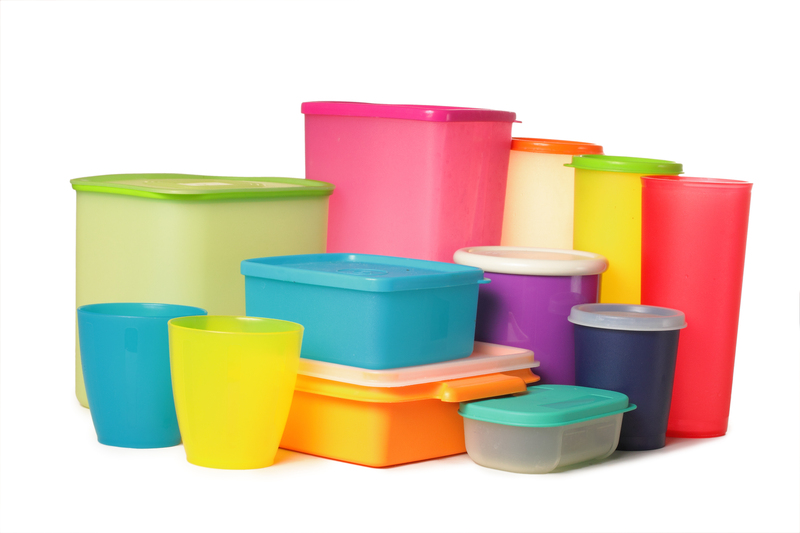Ways to Phase Out Plastic Dependence
Posted on 19/05/2025
The omnipresence of plastic in our daily lives is both a boon and a bane. On one hand, plastic is versatile, lightweight, and durable; on the other, it's one of the most significant contributors to environmental pollution. Phasing out plastic dependence isn't just about personal lifestyle changes--it requires a societal shift. In this article, we explore various ways to reduce plastic use, the pros and cons of this transition, practical tips, key takeaways, and a comprehensive conclusion.
Why Reducing Plastic Use is Essential
Plastics have infiltrated nearly every aspect of our daily existence, from packaging to electronics. While their convenience is undeniable, the environmental and health repercussions are increasingly apparent. Plastic pollution affects wildlife, damages ecosystems, and leads to microplastics in our food and water supplies. By reducing plastic dependence, we not only protect the planet but also safeguard our health.

Adopt Reusable Alternatives
One of the most straightforward ways to phase out plastic is by adopting reusable alternatives. Items like metal water bottles, canvas shopping bags, and glass food containers can significantly cut down on plastic waste.
- Reusable Water Bottles: Opt for stainless steel or glass water bottles over single-use plastic bottles.
- Reusable Shopping Bags: Keep reusable bags handy to avoid using plastic ones when shopping.
- Use Glass Containers: Glass or stainless-steel containers are great for food storage and are much more eco-friendly.
Recycle Properly
Recycling is often misunderstood and improperly executed. Make sure to follow local recycling guidelines to ensure that your plastics are being processed correctly. Not all plastics are recyclable, and contamination can ruin an entire batch of recyclables.
Support Legislation and Companies That Reduce Plastic Use
Advocating for policies that minimize plastic production and usage can yield broader changes. Additionally, support companies that prioritize sustainable packaging and production methods. Legislation such as plastic bag bans and incentives for using biodegradable materials can also make a significant impact.
Educate and Engage
Education is crucial for spreading awareness about the importance of reducing plastic dependence. Lead by example, educate others about the harmful impacts of plastic, and engage in community-driven initiatives that focus on reducing plastic use.
Practical Tips for Reducing Plastic Use
- Bring Your Own Containers: When possible, bring your own containers for takeout food or leftovers.
- Avoid Single-Use Items: Straws, cutlery, and plates should be reusable whenever possible.
- Buy in Bulk: Purchasing items in bulk can significantly reduce the amount of plastic packaging.
- Choose Products with Minimal Packaging: Opt for products that use less plastic in their packaging.
- Make DIY Cleaning Products: Homemade cleaning solutions can be stored in reusable bottles, cutting down on plastic waste.
Pros and Cons of Phasing Out Plastic Dependence
Pros
- Environmental Benefits: Reducing plastic decreases pollution and helps protect wildlife and ecosystems.
- Health Advantages: Less plastic means reduced exposure to toxic chemicals found in many plastics.
- Sustainability: Promotes sustainable practices and preserves resources for future generations.
Cons
- Convenience Factor: Plastic is incredibly convenient and replacing it can be challenging.
- Economic Impact: Some industries reliant on plastic may suffer economic downsides initially.
- Higher Initial Costs: Reusable alternatives sometimes come with a higher upfront cost.

Key Takeaways
- Educate yourself and others about the detrimental effects of plastic pollution.
- Adopt reusable alternatives for common plastic items like bottles, bags, and containers.
- Support government policies and companies that aim to reduce plastic use.
- Recycle properly and follow local guidelines to ensure effective recycling.
- Practical steps such as bringing your own containers and avoiding single-use plastic items can make a significant impact.
Conclusion
Phasing out plastic dependence is an imperative task that involves effort from individuals, communities, and governments alike. While it poses some challenges, the benefits for the environment and human health are significant. By adopting reusable alternatives, recycling properly, supporting relevant legislation, and educating our communities, we can gradually reduce our reliance on plastic and move towards a more sustainable future.
Reducing plastic use is not just a trend but a necessary shift for the well-being of our planet and ourselves. The journey may be complex, but every small step contributes to a massive collective impact. Start today, and be a part of the solution, not the pollution.
Latest Posts
Innovations Aiming to Reduce Ocean Waste
Reducing Waste in Christmas Celebrations




 020 3743 9508
020 3743 9508


